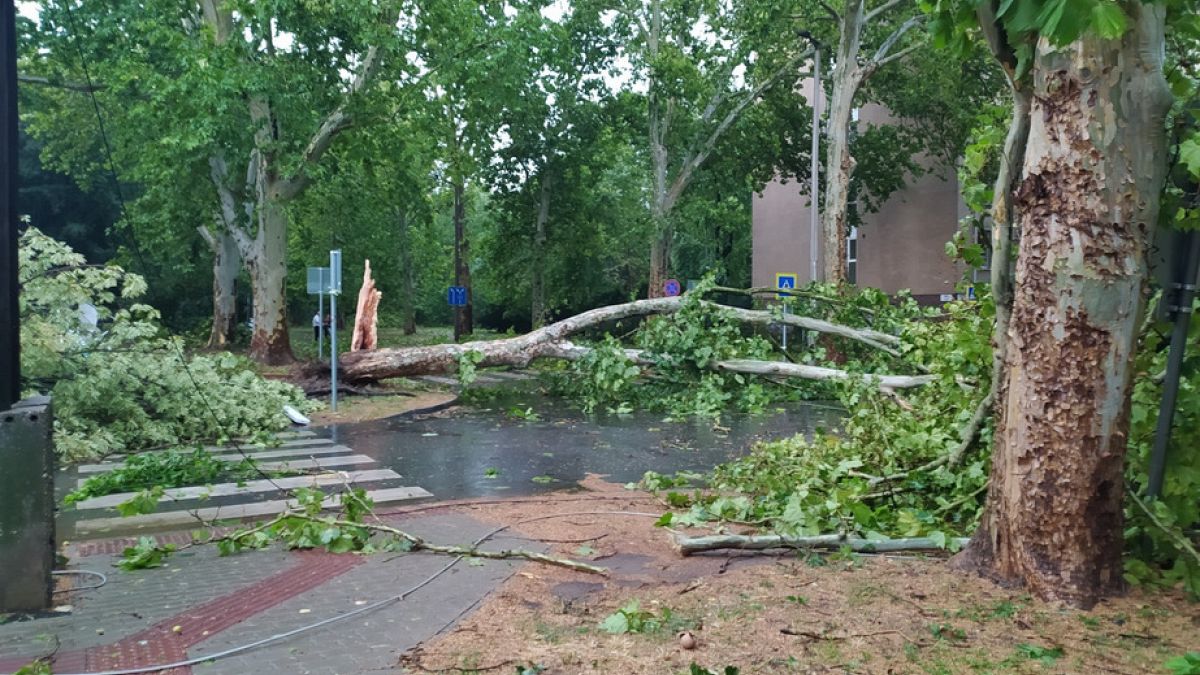

As the world braces against the forces of nature, recent weather events across different regions have brought both challenges and resilience to light. From the severe storms in Eastern Europe to the role of solar power during heatwaves, and the impacts of heavy rainfall in Texas and Himachal Pradesh, each story highlights the adaptability and strength of communities faced with nature’s tests.
In Eastern Europe, intense storms have temporarily closed Budapest Airport, impacting air and rail traffic significantly. The severe weather conditions were not just limited to Hungary but also lashed other cities such as Zagreb, Belgrade, and Ljubljana. These storms, characterized by heavy rainfall and gusty winds, disrupted daily life and reminded residents of the region’s vulnerability to sudden climate disturbances. Authorities were quick to respond, implementing safety measures to mitigate the impact and ensuring timely communications to the public. Resilience is key in such times, and the emphasis remains on restoring normalcy as swiftly and safely as possible.
A strong testament to resilience has also been illustrated through Europe’s efficient integration of solar energy during recent heatwaves. As temperatures soared across Germany, France, and Poland, the demand for energy increased significantly. However, solar power played a pivotal role in stabilizing the power grids. The capacity to store solar energy has proven to be a remarkable opportunity, allowing these nations to pass the ‘stress test’ posed by high power demands. This advancement not only highlights the strategic importance of renewable energy resources but also sets a foundational model for energy sustainability in the face of future environmental challenges.
While preparedness and mitigation pave the way toward safer environments, some regions continue to grapple with their immediate impacts. In the eastern Mediterranean, an enduring concern during the summers is the escalation of wildfires. Greece and Türkiye, both popular tourist destinations, experience frequent summer blazes. Climate change acts as a catalyst, amplifying the frequency of these fires. Travelers are advised to remain informed, prepared, and aware of emergency measures during their visits. Safety guidelines and community preparedness schemes are in place to safeguard residents and visitors alike.
Meanwhile, in Texas’s ‘Flash Flood Alley,’ the remnants of Tropical Storm Barry have unleashed torrential rains, leading to catastrophic flash floods. The situation in Kerr County, for instance, saw unprecedented rainfall resulting in significant damage and tragic losses. With thousands affected, local and national agencies have mobilized efforts towards rescue, relief, and rebuilding. Communities have come together, rallying in support of those impacted, showcasing the collective spirit to rebuild lives and homes.
Across the globe, Himachal Pradesh in Northern India faced its own trials as unusually heavy rainfall led to flash floods and landslides, washing away homes, roads, and bridges. The region, accustomed to monsoon patterns, witnessed an atypical intensity of cloudbursts that necessitated a robust response. The state’s relief teams have been working tirelessly to locate those missing and provide immediate support to the displaced. Efforts are directed towards long-term recovery and infrastructure resilience.
These weather events underline a common truth – the need for preparedness, community solidarity, and sustainable practices. Each event serves as a reminder of the power of nature and the resilience within us all to adapt, evolve, and thrive despite adversities. As communities navigate through this stormy period with calm determination, the emphasis remains on learning, growth, and cooperation to ensure a safer and harmonious coexistence with our natural environment.
Source: {link}
